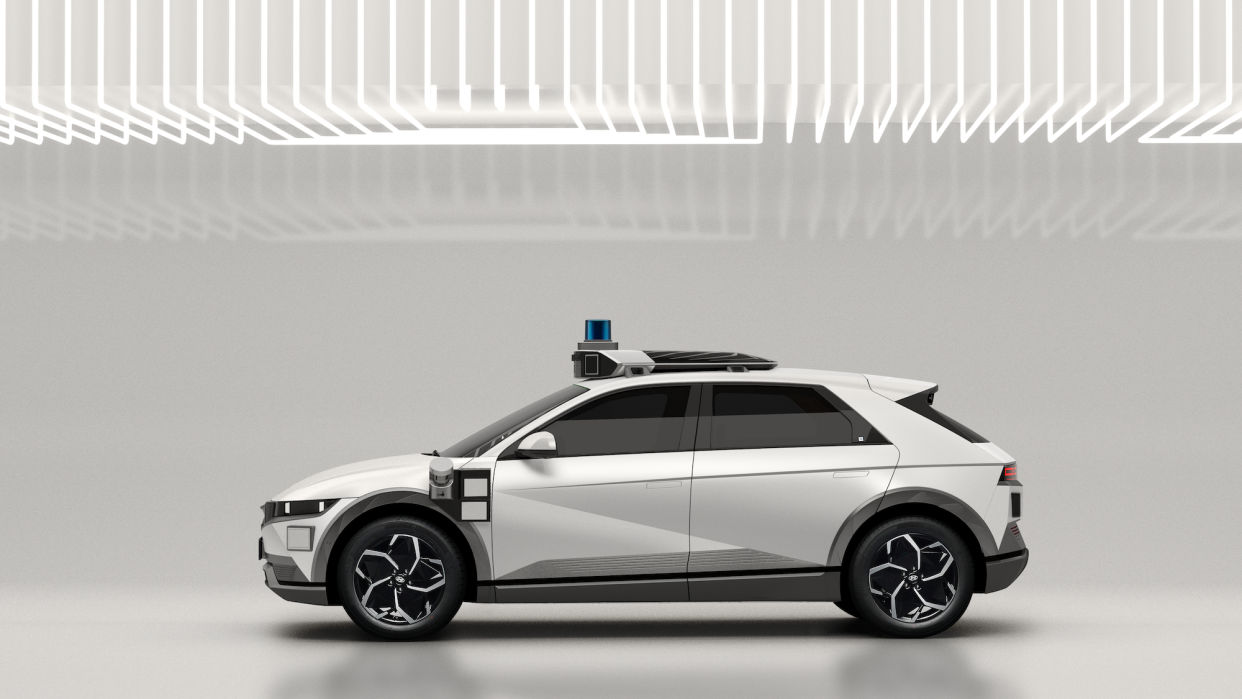Motional delays commercial robotaxi plans amid restructuring

Motional, the autonomous vehicle startup borne out of a $4 billion joint venture between Hyundai and automotive supplier Aptiv, will pause its commercial operations and delay plans to launch a driverless taxi service as it undergoes a restructuring, TechCrunch has learned. The aim is make progress on the core technology and the business model, while preserving capital, according to sources familiar with the changes.
Motional has pushed its plan to launch a commercial driverless robotaxi service with its second-generation AV — the Hyundai Ioniq 5 — to 2026, two years later than planned.
The company told employees Tuesday during an all-hands meeting that the changes will include layoffs, but did not provide a figure of how many people would be affected, according to sources who spoke to TechCrunch on condition of anonymity. Motional began notifying employees if they were laid off shortly after the meeting ended. The company employed more than 1,300 people prior to a 5% cut in workforce in March 2024.
Motional will halt its commercial operations, which today includes taxi rides in autonomous Hyundai Ioniq 5 vehicles in Las Vegas via the Uber and Lyft network. The company will also end deliveries for Uber Eats customers in Santa Monica using its autonomous vehicles. A human safety operator is behind the wheel in all of its commercial operations.
Instead, Motional plans to put greater resources towards building out the core technology. That will mean more testing, which will likely include an expansion to other cities, one source familiar told TechCrunch. Motional tests its technology in Boston, Pittsburgh and Las Vegas. Motional CEO Karl Iagnemma also posted a blog post shortly after the meeting ended that outlines its plans to "to focus resources on the continued development and generalization of our core driverless technology, while de-emphasizing near-term commercial deployments and ancillary activities. "
"Driverless vehicles will enter the market when the technology has evolved, and -- just as importantly -- when the business case for autonomous deployment is clear.," Iagnemma wrote in the blog. "While we're excited by our pace of technical progress, and our initial commercial deployments have yielded valuable insights, large-scale deployment of AVs remains a goal for the future, not the present."
Employees were told that the stubbornly high cost of running commercial operations coupled with pricey autonomous vehicle technology components makes the business case challenging today. During the all-hands, Iagnemma told employees that the vision had not changed and that Hyundai's recent investment into Motional is a sign of the company's support and belief that they're on the right track, according to sources who listened to the call.
The restructuring comes less than a week after Hyundai Motor Group invested nearly $1 billion in Motional as part of a broader deal that included buying out a portion of joint venture partner Aptiv. About half of that amount, $475 million, is going directly into Motional's coffers. The remaining $448 million was used to buy buy 11% of Aptiv's common equity interest in Motional.
Hyundai's new investment puts Motional's valuation at $4.1 billion, according to sources on the call. That's about the same valuation as Motional had in 2020.
Earlier this year, Motional's future was put in doubt after Aptiv announced plans to reduce its ownership interest and stop allocating capital to the venture due to the high cost of commercializing a robotaxi business and the long road ahead to profits. Aptiv expects to reduce its common equity interest in Motional from 50% as of March 31 to about 15%, leaving Hyundai with the remaining 85% control.

